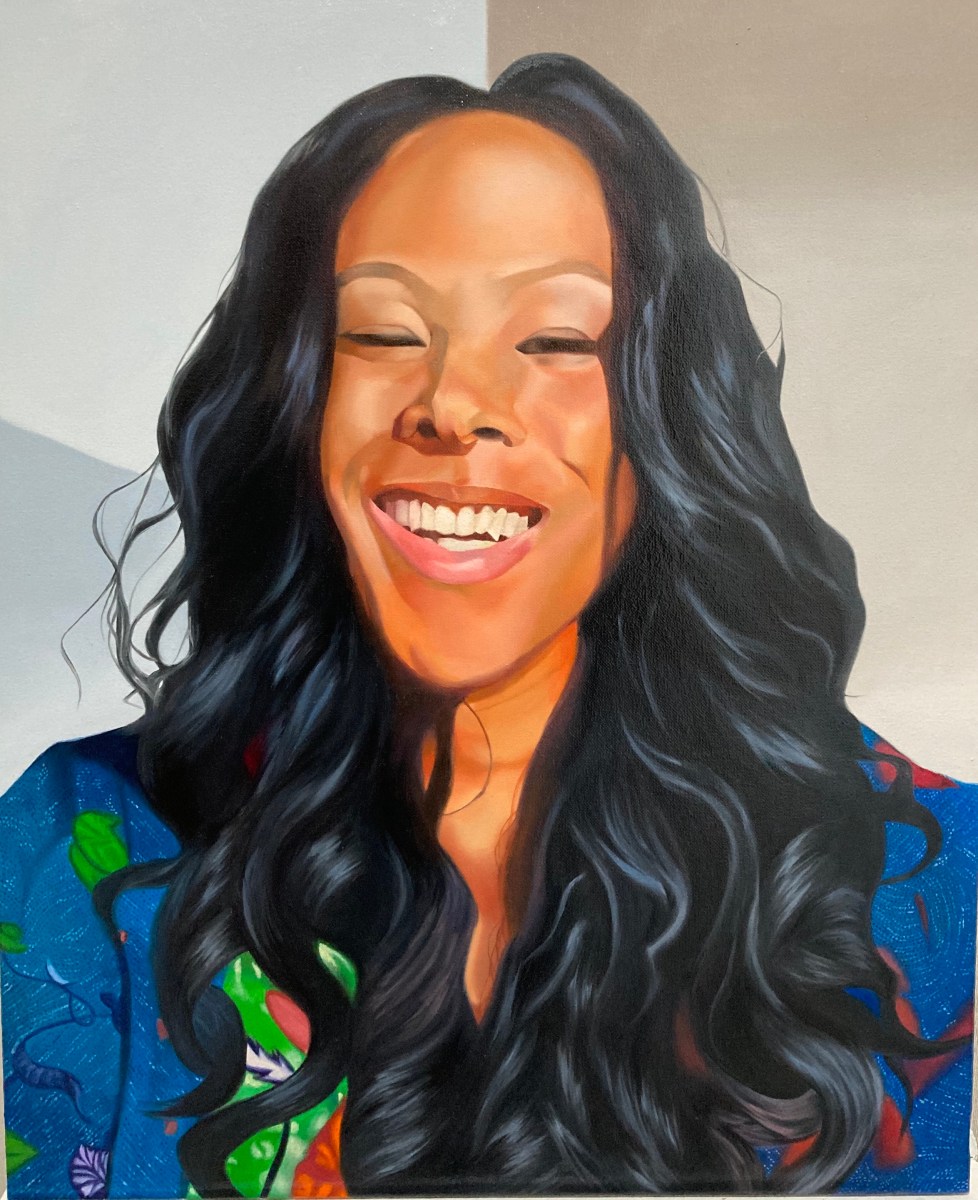In “Lucas Acid,” Moodie Black are more interested in texture than instantly understandable words. | FAKEFOURINC.COM
“Vanowen,” the opening track on noise rap duo Moodie Black’s latest album, “Lucas Acid,” features feedback, blasts of electronic shrieks, and live bass guitar. It does not include anything resembling mainstream hip-hop production. The group, consisting of trans female vocalist/ producer Kdeath and guitarist Sean Lindahl, embraces the noise rap label — it appears as a link on the upper right-hand corner of their website, as well as a hashtag on this album’s page on the download site Bandcamp. But they have an equal claim on being a rock group, influenced by artists like Chrome, Cabaret Voltaire, Big Black, Slowdive, and Nine Inch Nails.
Kdeath’s lyrics explore the difficulties of being an Afro-Latinx trans woman right now. However, “Lucas Acid” is not produced in a way that makes it easy to figure out exactly what she’s saying. Moodie Black are more interested in texture than instantly understandable words. The music is often mixed louder than her vocals. Furthermore, she’s not a conventional MC: she generally speaks instead of following the beat closely and sometimes mutters a line and then screams the same words. “Sway” is the only song where she approximates a typical hip-hop flow.
The idea of mixing hip-hop with shoegaze and industrial rock isn’t new. The Bomb Squad’s early productions for Public Enemy, which proudly sampled saxophone squeals from free jazz records over funk beats, set the stage for this level of abrasiveness, as well as artists like the Disposable Heroes of Hiphoprisy, Dälek, and Techno Animal. But the current cult status of Death Grips, who amazingly got signed to the major label Epic and proceeded to sabotage their career by leaking their second album for it and planning an album cover showing an erect penis, popularized this aesthetic.
Words not always out front in “Lucas Acid,” but Kdeath has her say
However, Moodie Black, who began in Arizona, relocated to Southern California, and currently live in Minneapolis, have been working for a decade — Kdeath’s first album, “Raphood & Authenticity,” was released in 2008 — predating Death Grips’ debut with the 2011 mixtape “Ex-Military.” (In fact, Moodie Black have remixed Death Grips and collaborated with Dälek.) Artists like BLACKIE, clipping, and JPEGMAFIA have picked up on the noise rap scene, and echoes of it can be heard in more mainstream releases like Kid Cudi’s “Indicud” and Kanye West’s “Yeezus.”
“Lucas Acid” does not reveal itself very quickly. Part of their aesthetic’s point is that the music communicates at least as much as the words and that it doesn’t wear a didactic message on its sleeve. The lyrics of “Sway” come across as an attempt at bragging that get tripped up by Kdeath constantly “see[ing] ‘death to a tran’/ all bad everywhere.” “Lips” states, “I’d be a problem if I could only get one second out my lips… I’m’a die with my fists clenched.” That song eventually abandons vocals to close out with a minute of completely distorted guitar and synthesizer.
“Palm Trees” is the closest the group gets to a love song, and it stands out on “Lucas Acid” because it has some negative space and dynamics, although the song is dominated by guitars laced with vibrato. The production on “Lucas Acid” is maximalist, expanding into the whole soundscape. “Tuesday” messes around with Kdeath’s vocals, doubling them with distorted sonic doppelgängers and speeding up her line “tearing out my guts” for the chorus. Its music video matches this visually in its use of VHS-style glitches.
“Lucas Acid” conveys a sense of being lost in a menacing and chaotic world. Moodie Black abandon the comforting elements of traditional hip-hop; while many people feel threatened by the smack-talking bravado of gangsta rap, it usually suggests that the MC is capable of making his way through a racist and violent world. Kdeath’s declaration on “Parished” that “I like to fuck bitches” leaps out as one of the album’s few conventional hip-hop tropes, although she goes on to acknowledge her imperfections. Despite how some people might interpret her name, when Kdeath mentions blood, it’s coming from her wrists. “Screaming” takes the band’s ethos to its limit: Kdeath says, “I ain’t really screaming, there’s no pain” and then instantly contradicts herself by emphasizing those lyrics by yelling them, while also taking potshots at music critics and mainstream rappers.
The anger running through “Lucas Acid” feels like a response to what it feels like being a trans woman of color in Trump’s America. (The president gets cited by name here.) But that oppression began long before his election, and Moodie Black started recording this album two years ago. Repeated listens reveal that it’s as carefully structured and arranged as it is nightmarish and assaultive. Moodie Black are up to something quite ambitious: an audio portrait of the alienation and pain of being a minority. “Lucas Acid” finally ends on a note of triumph and resistance — the chorus of the final song “Burn” repeats, “I don’t burn for you,” as Kdeath takes control over her own life.
MOODIE BLACK | “Lucas Acid” | Fake Four, Inc. | Released Apr. 6 | fakefourinc.com



































